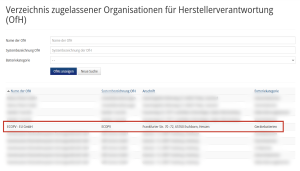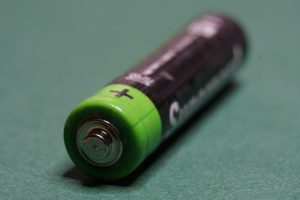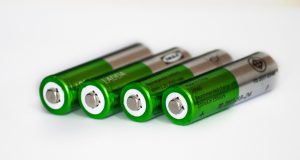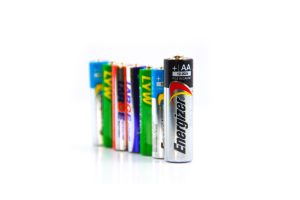Why the German Packaging Act Matters
The German Packaging Act (VerpackG) came into effect to ensure that businesses take responsibility for the environmental impact of their product packaging. It applies to a wide range of companies placing packaged goods onto the German market—whether through retail, e-commerce, or B2B channels. Non-compliance can lead to heavy penalties, legal issues, and sales bans.
In this article, we will explore which types of businesses must comply, what their obligations are, and how ECOPV-EU GmbH can help streamline compliance across VerpackG, BattG, and ElektroG regulations.
1. What is the German Packaging Act (VerpackG)?
The Packaging Act is German national implementation of the EU Packaging Directive, designed to:
- Reduce packaging waste.
- Improve recycling rates.
- Hold producers and distributors accountable for the lifecycle of packaging.
Companies must register with the LUCID Packaging Register, participate in a dual system, and report packaging volumes.
2. Key Obligations under VerpackG
If your business is affected, you must:
- Register in the LUCID database.
- Participate in a dual system for packaging recycling (e.g., Der Grüne Punkt, Interseroh, etc.).
- Report the types and volumes of packaging materials regularly.
- Ensure transparency and accuracy in declarations.
3. Who Needs to Comply with VerpackG?
The answer is: more companies than you think. Here are the main categories:
a. Online Retailers Selling to German Consumers
Any e-commerce seller (eBay, Amazon, own webshop) that ships packaged goods to Germany is considered a “producer” under VerpackG—even if located outside Germany.
b. Brand Owners and Private Label Sellers
Companies placing own-branded or white-label goods on the German market are held responsible for the packaging, not the manufacturer or distributor.
c. Manufacturers Exporting to Germany
Even if you are based outside the EU, once your product reaches German soil, your company becomes subject to VerpackG regulations.
d. Importers and Distributors
Importers who place goods onto the German market must ensure that the packaging is properly registered and licensed.
e. Dropshipping Businesses
Even if your business model avoids physical contact with the goods, if you are the legal entity placing the product on the German market, you’re still responsible.
4. Consequences of Non-Compliance
Failure to comply with VerpackG can result in:
- Sales bans in Germany.
- Fines up to €200,000 per violation.
- Blacklistings on platforms like Amazon and eBay.
- Reputational damage due to lack of environmental responsibility.
5. Common Misunderstandings about VerpackG
“I’m a small seller; this doesn’t apply to me.” → Wrong. Even one package triggers obligations.
“The fulfillment partner is responsible.” → No. The obligation lies with the producer, importer, or seller.
“I don’t sell to end consumers.” → Still may apply if packaging ends up in household waste.
6. How ECOPV-EU GmbH Helps You Stay Compliant
At ECOPV-EU GmbH, we provide end-to-end support to simplify your compliance process:
- Tailored Consulting
We understand that every business is different. We provide custom compliance solutions that match your product type, packaging material, and sales model.
- Authorized Representation
We act as your legal representative in Germany under ElektroG, BattG, and VerpackG, ensuring full compliance.
- Fast Registration & Reporting
We streamline the LUCID registration, help you join a dual system, and handle your data reporting obligations.
- International Scope
Whether you’re based in China, the U.S., or elsewhere, we help you comply with German law globally—not just locally.
7. Why Choose ECOPV-EU GmbH?
- Deep Expertise in EPR compliance.
- Fast processing and multilingual support.
- Partnerships with top dual systems and waste collection firms.
- Personalized support rather than generic checklists.
8. What Other Laws Might Apply to You?
If you’re dealing with packaged goods, you may also need to comply with:
- ElektroG (Electronic waste compliance)
- BattG (Battery law compliance)
ECOPV-EU helps with all three, bundling compliance into one efficient solution.
9. Is Your Business at Risk?
You might be at risk if:
- You sell packaged goods to Germany (even as a third-party seller).
- You’re not registered in LUCID.
- You don’t have a valid dual system license.
- You haven’t submitted annual packaging reports.
Don’t wait for fines or delistings. Be proactive.
10. Get Started Today with ECOPV-EU
Staying compliant with German packaging laws is not optional—but it doesn’t have to be complicated. Let ECOPV-EU GmbH guide you through every step.
Contact us today to receive a free compliance check or begin your VerpackG registration now.
Final Thoughts
The German Packaging Act (VerpackG) is a cornerstone of environmental responsibility for any business selling or shipping to Germany. Whether you’re a growing e-commerce brand or a global manufacturer, understanding your obligations and acting early is key.
Compliance is not just about avoiding penalties—it’s about building trust, improving sustainability, and opening doors to the European market.
Contact
We look forward to your message
info@ecopv-eu.com
+49 6196 5835357
Frankfurter Str. 70-72
65760 Eschborn











